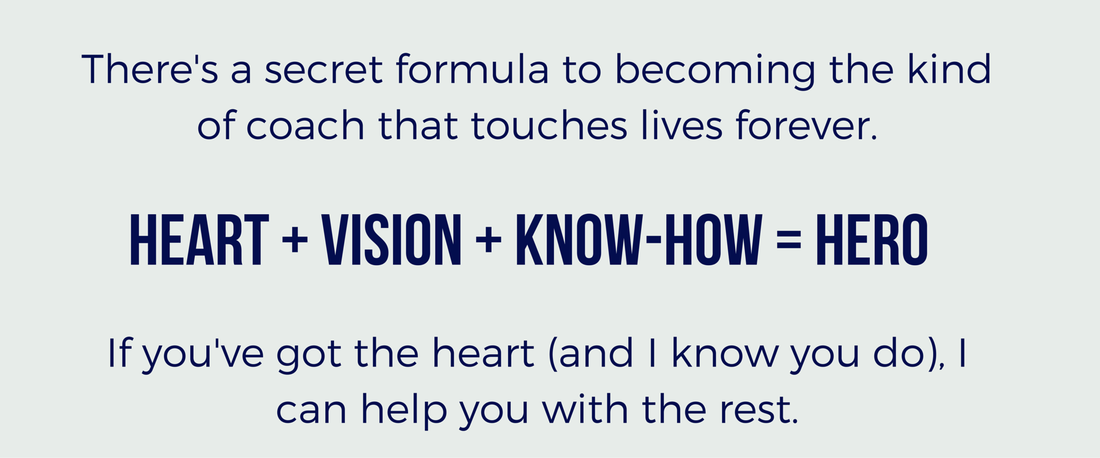
Did you compete in cheer originally? If so, how did you find the transition from athlete to coach?
I started as a gymnast then switched to cheerleading when I realized I wasn't going to the Olympics so thought I might as well spend some time with my friends and keep up my skills. I cheered from junior high to college and completely fell in love with it. I started coaching it early on in high school, and I found it a little challenging to switch from athlete to coach. I had to learn to teach what I knew and not just do it. It was difficult at first, but after a couple of years it came a lot more easily as I watched others teach, which I did obsessively, and starting learning more of the mechanics of the things that came naturally to me.
What lessons did you learn along the way that are important to your coaching today?
I learned that you always have something to learn and I learned that establishing boundaries is very important. One of my first coaching jobs out of high school was for my alma mater. So I was coaching old peers. It made it very tricky, but we came through after a rough patch. That taught me that healthy boundaries and good communication are the key to just about everything.
You say Heart + Vision + Know-how = Hero. What made you settle on these ingredients?
I took a little inspiration from Coach Taylor and Friday Night Lights here, but I really believe it's true. You need the heart, the passion, the desire to be better at what you do for your team. You need vision, a clear picture of the future of your program and your goals, especially what you want for the character of your athletes. And you need know-how, credibility, and coaching skills to make it happen. When you put those together you end up becoming the kind of coach people remember because you make a difference in people's lives, and those are the coaches I love working with.
How would your athletes describe you as a coach?
I haven't coached athletes in a few years, but I think they would say focused, creative, and passionate.
You mention running a practice, teaching stunts effectively etc which all require excellent communication skills. What do you think are the key things to keep in mind when communicating with and coaching athletes?
I think it's most important to communicate expectations at all times, and it's important to consider your goal when communicating. Are you trying to inspire, educate, inform, or something else? Then you can frame the communication properly.
You describe travel as your number one hobby. Why is this? Do you think it has had any impact on you as a person and as a coach?
I can't explain my love for traveling. It's just been one of those desires that I've had since a child. Recently, I've had the opportunity to travel to quite a few places, and I absolutely love it and want more! It has certainly had an impact on me as a person to be someone who has more grace for others and focuses on what's important long-term and not just what seems important in the moment.
Your website kateboydcheerleading is aimed towards helping coaches - what were you seeing out there that made you feel you could be of assistance?
I was a rare case that was able to coach cheerleading part-time at a school. Many coaches I encountered were full-time teachers who happened to be cheerleading coaches, and many of those were handed cheerleading whether they had experience or not. I knew that I had a unique combination of skills that could help them with their trouble spots as a professional communicator, skilled teacher, and tech-savvy person. So they could get the education they desired from their home or their classroom in an affordable format.
Your website helps to educate coaches. Is there any form of official/formal Coach Education within the sport of cheerleading?
There are a few safety certification programs for school coaches through National Federation of State High School Associations and American Association of Cheerleading Coaches and Advisors. However, these aren't required or formal. All-star coaches have their own certification programs through the US All-Star Federation that are level-specific, and this is a very formal process.
Are there any common themes that you see younger and less experienced coaches seem to struggle with?
Younger and inexperienced coaches tend to struggle to get organized at first, especially for such a long season. They usually have a lot of questions about stunts and they are encountering cheerleading parents--famous for their passion--for the first time. So they're learning to communicate, teach, and be administrative which can be tough all at once.
Interesting that you released your Guide to Problem Parents. I'm sure this is something coaches in all sports have struggled with at times. It mentions, among other things, how you introduce yourself, expectations of both you and them too. I know of a few schools and Academies within Rugby here in the UK that run parent forums to do a similar thing and it works really well. Why do you think it is so important to establish that 'working relationship' with parents?
Most of the time in cheerleading, you're relying on parents to get your athletes to and from events, practices, and games, and you need their permission for their child to participate. So it's important to have them on the same page from the beginning and also try to establish a relationship with them so they trust you and want to work with you rather than against you.
Really enjoyed one of your blogs called "3 Keys to Your Parent Plan", think it would be a good read for any coach who works with young athletes. Particularly agree with the points of over-communication and trust. Do you think there is any aspect of dealing with parents that you still need to work on and improve?
I think there is always room for improvement! I'm not always the best connector and tend to shy away from reaching out without a good reason, but I still worked on it because I know it's important for me and for athletes to have solid parent relationships.

 RSS Feed
RSS Feed
